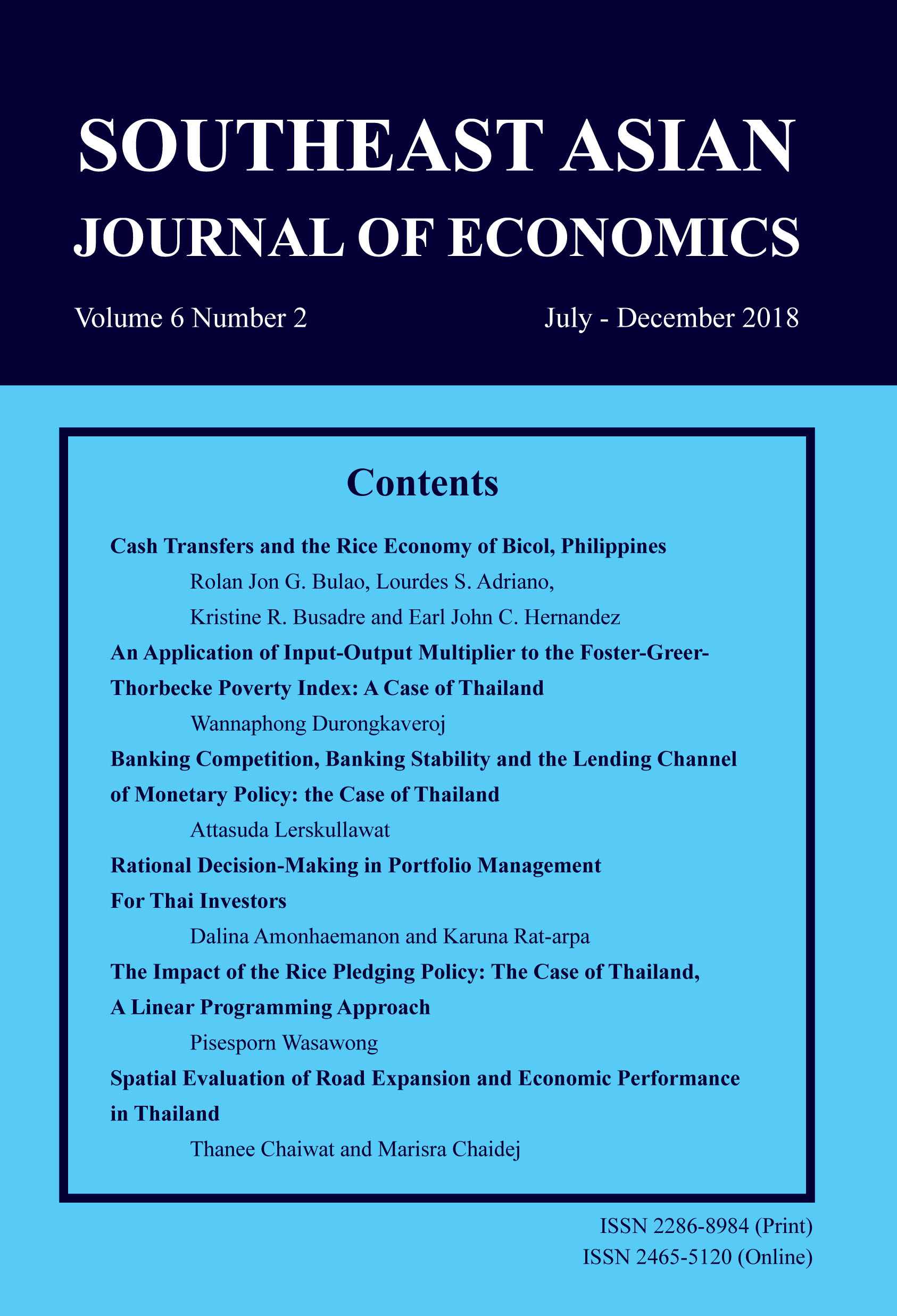Comparing and Finding the Linkage Between Indigenous-Operated and Foreign-Invested Hotels in Thailand
Keywords:
FDI Spillover Effects, DEA, Hotel ProductivityAbstract
Since the 1997 economic crisis, tourism related industries have played one of the major roles in Thailand GDP. Despite the vigorous role, the empirical studies of frm’s performances in the Thai hospitality industry are relatively limited. With frm-level data using the DEA (Data envelopment approach) efciency estimating approach, this paper investigates FDI spillover efects in the hospitality industry. In addition, this paper backwardly examines the question of whether foreign-invested hotels actually outperform indigenously operated hotels. We fnd some evidence of labor productivity and efciency gaps between these two groups of frms. Only foreign-operated resorts, not typical hotels, are found to have higher labor productivity and superior efciency than their local counterparts. Results from spillover part indicate positive externalities from foreign-invested to locally operated hotels, especially in the non-tourist destinations and particularly through the labor mobility channel. Interestingly, a positive relationship between performance and foreign guest intensity of hotels are consistently found throughout our study.
Downloads
Published
How to Cite
Issue
Section
License
The submission of a manuscript implies that the paper is an original work and has not been published elsewhere. The author(s) authorize the journal to reproduce or distribute the paper in printed or other electronic forms.






